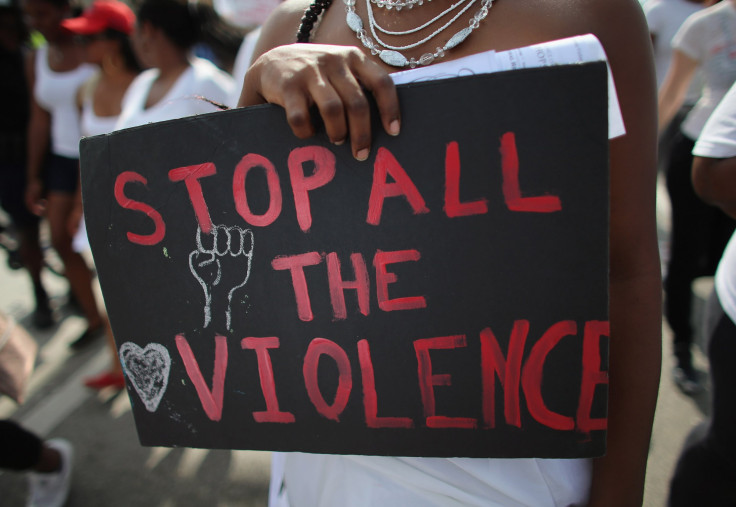
The first major review of violence against women has been released, and states that about a third of women worldwide have been physically or sexually assaulted by a former or current partner.
The World Health Organization released the study on Thursday, and estimated that nearly 40 percent of women killed worldwide were slain by an intimate partner and the assault rate by a partner was the most common kind of violence experienced by women.
RELATED: Domestic Violence In The Public Eye: See Celebrities Who Have Suffered Abuse From Their Partners [PHOTOS]
The rates of abuse vary by world regions. Data from Bangladesh, East Timor, India, Myanmar, Sri Lanka and Thailand showed that 37.7 percent of women were victims. The Middle East ranked in second with 37 percent of women who have experienced physical or sexual violence from a partner at some point in their lifetime. Sub-Saharan Africa followed, with 36.6 percent.
The rate was 30 percent in Latin and South America and an average of 23.2 percent were affected in a group of high-income countries including North America, the European Union, Japan, South Korea, Australia and New Zealand.
RELATED: Nigella Lawson, Celebrity Chef, Choked By Husband Charles Saatchi In London Restaurant [VIDEO]
"The prevalence is shockingly high," said lead author Karen Devries, a social epidemiologist at the London School of Hygiene & Tropical Medicine. "People in general will be surprised by the figure, since many forms of violence remain hidden from public view. Those who have experienced intimate partner violence often do not disclose to those people close to them."
The WHO blamed taboos that prevent victims from coming forward, failings in medical and justice systems, and norms that mean men and women may see violence as acceptable.
RELATED: Christian Chávez, Mexican Telenovela Star, Opens Up About Strained Relationship With Ex Who Accused Him Of Attempted Murder [VIDEO]
"These findings send a powerful message that violence against women is a global health problem of epidemic proportions," added Dr. Margaret Chan, Director-General of the World Health Organization, which partnered on the research with the London School of Hygiene and the South African Medical Research Council. "We also see that the world's health systems can and must do more for women who experience violence."
"These to me are shocking statistics," said Flavia Bustreo, head of the WHO's family, women's and children's health division. "It's also shocking that this phenomenon cuts across the entire world."
"These data really show the tremendous toll violence has on the health of women," said Claudia García-Moreno, a WHO specialist on gender, reproductive rights, sexual health and adolescence.
RELATED: Facebook Domestic Violence Content Riles Feminist Groups As Advertisers Exit; Social Media Site Promises To 'Do Better'
To get the estimate for domestic violence figures, scientists analyzed information from 86 countries focusing on women over the age of 15. They also assessed studies from 56 countries on sexual violence by someone other than a partner, though they had no data from the Middle East. WHO experts then used modeling techniques to fill in the gaps and to come up with global estimates for the percentage of women who are victims of violence.
The studies of sexual violence against women by someone other than a partner found that about 7 percent of women worldwide had previously been a victim.
WHO defined physical violence as being slapped, pushed, punched, choked or being attacked with a weapon. Sexual violence was defined as being physically forced to have sex, having sex because you were afraid of what your partner might do and being compelled to do something sexual that was humiliating or degrading.
Domestic violence not only kills some women; it also leaves others with long-standing mental and physical health problems.
Abused women are twice as likely to report being depressed and having their own problems with alcohol. They are also 1.5 times more likely than women who haven't been abused to have a sexually transmitted disease including, sometimes, an HIV infection.
© 2025 Latin Times. All rights reserved. Do not reproduce without permission.





